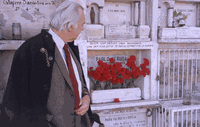
Arnold J. Bauer (1931-2015), Arnie to just about everyone, taught Latin American at UC Davis from 1970-2005. A huge community of friends and family valued his sense of humor, passion for conversation, and loyalty. He contributed to Latin America history through wide-ranging and engaging publications and his work as a teacher/mentor in the United States and Chile.
Arnie grew up on a farm in northeast Kansas, the subject of his acclaimed memoir, Time's Shadow. The question of how people worked the land, organized themselves, and related to broader society underlined much of his work. The Air Force took him to Morocco in 1953, sparking an interest in travel and language and a distrust of U.S. Cold War rhetoric and policies. The G.I. Bill allowed him to study in Mexico (what became the Universidad de las Américas), the beginning of his fascination with Latin America.1 After several years of unsatisfying work as a salesman and bohemian life in San Francisco (he held a cocktail party to celebrate the Cuban Revolution), he entered graduate school at UC Berkeley in 1963. (He was initially turned down but talked his way in with the aid of James King.) He fell in love with Chile when conducting research there, a romance that continued to the end of his life. He taught at UC Davis from 1970 until retirement in 2005 and ran the University of California program in Santiago, Chile for five years. Students remember him for his lively lectures and his passion about reading and caring.

Well-known for his lively and clear prose, Arnie wrote path-breaking texts on agrarian history (Chilean Rural Society: From the Spanish Conquest to 1930 [1975]), the Catholic Church and society (as editor, La iglesia en la economía de América Latina, siglos XIX–XIX [1986]), and material culture (Goods, Power, History: Latin America’s Material Culture [2001]). In 2009 he released an academic mystery regarding a sixteenth-century Mexican codex, The Search for the Codex Cardona.
The Atlantic named his memoir (Time’s Shadow: Remembering a Family Farm in Kansas [2012]) as one of the top five books of 2012. He published widely in Chile, including the collection Chile y algo más. Estudios de historia latinoamericana [2005]. He was the author of more than fifty articles and sixty reviews, characterized by their wit and insight. He downplayed American academic debates and instead approached broad topics from the point of view of contemporaries (he always asked how common people lived, which led him to material culture) and how Latin Americans themselves understood and framed the problemática.
Arnie was a bon vivant, talented vintner (his Dos Patos wine fueled many social engagements in his beloved Yolo County), and passionate conversationalist. The house he built with his own hands with the late Ward Stavig and others on Road 96 was the site of many lively meals over the decades, hosting distinguished guests such as Eric Hobsbawm and Fidel Castro´s brother-in-law. He loved irony and contradictions and had several endearing ones of his own. Decades ago, he lost much of his hearing in one ear and thus always preferred to sit outside, even in winter, to avoid crowd noise. Nonetheless, even though he often struggled to catch every word, he had a fine ear for language (etymology delighted him) and all types of conversation. Arnie had no patience with precious academic prose, bureaucratic obfuscations, or just about anything written or said he deemed pretentious. He considered himself an "accidental academic" because of his farm background and always downplayed his accomplishments, but was a keen reader, extraordinary editor, and deep intellectual, without any of the pretension. I owe him a great debt as he encouraged and guided me and read just about every word I ever published. I fondly remember his nudges to push farther into everyday life or his critique of my writing, including one marginal comment that my verbose introduction read like a "badly translated national anthem."

about growing up in rural Kansas
Chile had a special place in his heart: he always lauded Chileans' fine sense of humor, their ability to break bread even among political enemies, and the scenic valleys and coastal ranges that he so loved to visit. In 2005 the Chilean government granted him the Order of Merit Gabriela Mistral (Orden al Mérito Docente y Cultural Gabriela Mistral), Chile’s highest honor for foreigners, for his contributions to education and culture. On April 10, 2016 Chile commemorated him in a ceremony that he would have loved. His widow, Danielle Greenwood, friends, and students gave tribute to Arnie at the San José del Carmen hacienda, el Huique, in the Colchagua Valley outside of Santiago. After the tribute, we deposited his ashes (not all--some were spread in Kansas) in the hacienda's lovely chapel with a plaque that stressed his enduring love affair with Chile.
Chuck Walker
Read Chuck Walker’s 2013 interview with Arnie Bauer here.